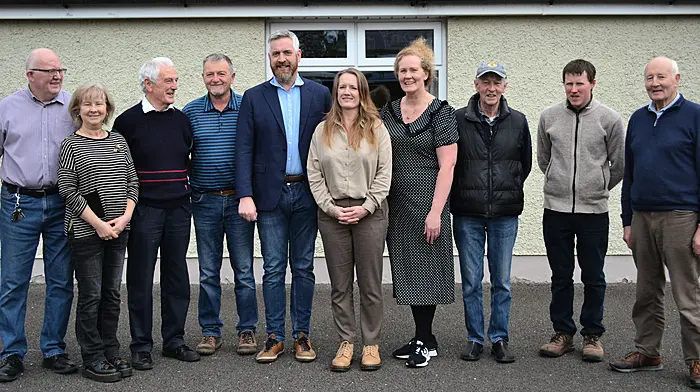FARMERS will need to be compensated if new EU proposals to regulate the live export trade come to fruition.
That’s according to Ireland South MEP Billy Kelleher, who said new requirements contained in the European Commission’s proposal on animal transport will be both ‘problematic and costly’ for Irish farmers and exporters.
The live export trade was worth €170m in 2022 with 286,000 animals transported. Figures released for 2023 so far suggest that the figure could be 20% higher this year.
But the issue of animal welfare and animal transport has been firmly in focus in West Cork and throughout Ireland since an RTÉ undercover investigation showed serious failings and animal mistreatment in some sectors of the industry.
The Commission last week outlined what it calls ‘the biggest reform of EU animal welfare rules during transport in 20 years’ as part of its Farm to Fork Strategy and the European Green Deal’s agenda for sustainable agriculture and food production.
Under the Commission reform proposals a nine-hour limit will be placed on transport of animals but this will not include time spent at sea. Calves would be prohibited from travel until they are 35 days old, a significant increase on the current minimum requirement of 14 days.
MEP Kelleher, who was previously a member of the Committee of Inquiry on Animal Transport (ANIT), which was tasked at looking at violations of animal transport standards, said a delicate balance has to be struck ensuring the welfare of the animals but also securing the viability of farmers, marts, and the export sector.
‘Animal welfare standards must be met but we can’t forget the importance of the dairying sector to Cork, and to West Cork, and we must protect farmers and their livelihoods,’ he said.
‘The increase in the minimum age for transport from 14 days to 35 days will be problematic and expensive for farmers. Additional labour costs will be incurred to ensure animal welfare on farm, and extra housing will be needed if bull calves are to be kept on farm for the extra three weeks. The calving season is already a very pressurised time and this will bring additional costs. Farmers can’t be left to bear the brunt of this.’
Mr Kelleher said a new EU revenue stream will be required to support farmers as existing CAP money cannot be reallocated.
The Commission, in its proposal, accepts that time spent at sea should not be counted in any maximum journey time calculation. This was seen as crucial for Irish exporters, given the journey time from Rosslare to Cherbourg is typically 17 hours. ‘This is massively important for Ireland as an island member state. There was a lack of understanding of the live export trade and Ireland’s position, and I fought to get recognised in my work on the ANIT committee,’ said Mr Kelleher.
‘I am concerned at the maximum journey time for unweaned calves being set at nine hours. The average journey time from the ferry port in Cherbourg to the major markets in the north of the Netherlands is approximately 12 to 13 hours. While there is an ability to extend the journey time for an additional nine hours, it would require a massive overhaul of, and investment in, truck feeding technology to allow milk or milk replacer be fed to the animals.’
Incorporating technology into animal transport is seen as a significant area of focus.
The animal welfare reforms are still only at proposal stage, and the European Parliament and the European Council will, in the New Year, begin their input, including amendments. ‘As someone who fought to enhance animal welfare standards and to protect the ability of Irish farmers to transport their animals to the continent as part of the Animal Transport Committee, I will be tabling amendments to find a more balanced approach on some of these issues,’ said Mr Kelleher.
And he said that while it was possible the reforms could be closed out by April – the last sitting of the parliament before the upcoming European elections – he said this was very unlikely.
The package includes an overhaul of the current EU rules for animals in transport, which will improve the wellbeing of the 1.6 billion animals transported in and from the EU each year. The new rules reflect the latest scientific evidence and insights as well as technological developments.
Rules for the exports of live animals to outside the EU will be tightened, including better controls in third countries to meet equivalent standards as those found in the EU.
The Commission proposals for animal transport are part of a larger animal welfare strategy, covering other animal species. The Commission is proposing, for the first time ever, new EU rules on the traceability of dogs and cats as pets, with a new national database.
‘The new rules will establish, for the first time, uniform EU standards for the breeding, housing and handling of dogs and cats in breeding establishments and pet shops as well as shelters,’ the Commission stated. ‘The traceability of dogs and cats will also be reinforced through mandatory identification and registration in national databases to fight illegal trade and better control animal welfare conditions in the establishments.’










